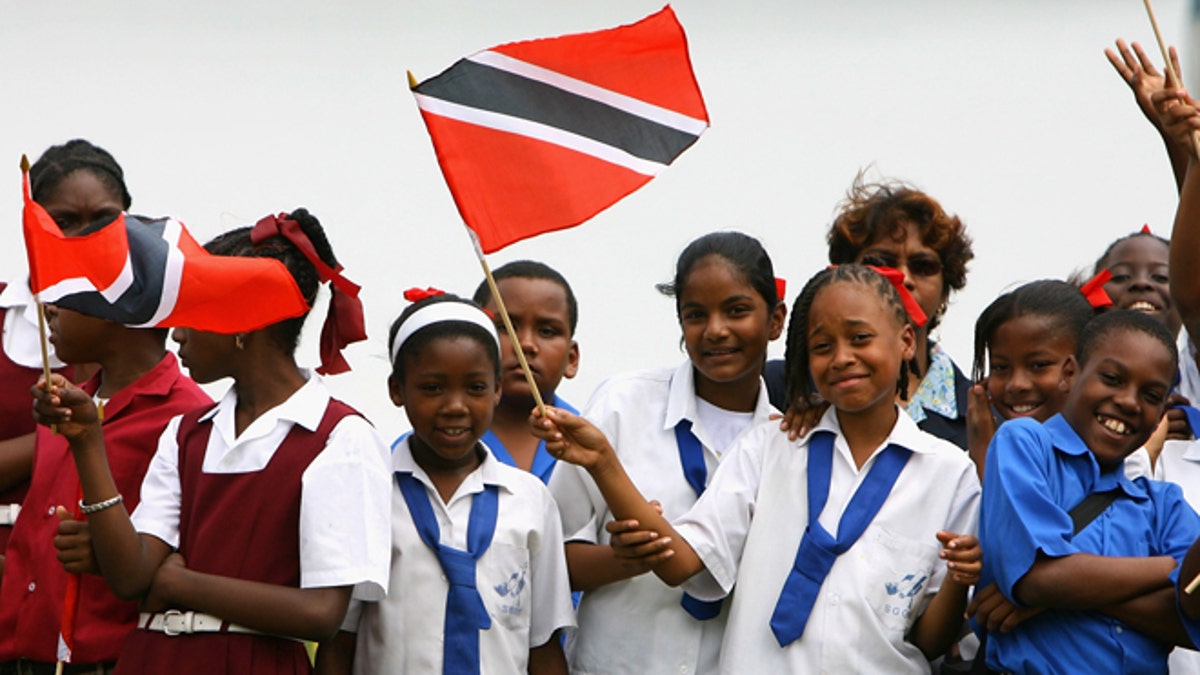
PORT OF SPAIN, TRINIDAD AND TOBAGO - MARCH 05: Children wave flags at Queen's Cricket ground on the second day of a three day tour of Trinidad and Tobago on March 5, 2008 near Port of Spain, Trinidad. The Royal Couple have arrived in Trinidad on the first leg of a ten day tour of the Caribbean. Sir Donald Gosling's Yacht Leander will transport the couple from Island to Island, then to their final destination, Jamaica. (Photo by Chris Jackson/Getty Images) (2008 Getty Images)
While I am from Puerto Rico and know enough about my culture to pass down elements to my children, I don't know much about the other half of their heritage. You see, my husband is from the Caribbean country of Trinidad and Tobago; specifically, he's from the island of Trinidad. This means our children have two cultures to embrace, not counting the American culture in which they are growing up.
It's general knowledge that children normally learn the most about culture from their mothers. This is because moms are typically the ones to cook most meals and are storytellers. As we know, some of the best ways to learn about a culture is through food, music, and stories.
In our house, it does seem to be the case that I'm the one sharing the most about my culture. Unfortunately, this results in my children knowing more about Puerto Rican culture than Trinidadian culture. I'm not content with this and would really like them to learn more about their Trinidadian heritage as well. But, how am I to teach them about a culture I know very little of?
My first instinct is to have my husband teach them more about his island and culture. However, being that I'm the primary cook in our house, and my husband doesn't often listen to traditional Trinidadian music, this tactic would require a lot of effort. I would definitely have to learn how to cook new and unfamiliar dishes, something I've been wanting to do since we first married, but that is not simple to put into action. Still, it's not an impossible feat.
Another way to incorporate more of my husband's culture into our daily lives is to create a family learning project. That is, as a family, we would all work together on learning more about Trinidad, its people, food, and other cultural aspects. This would allow me to learn more alongside my children, and in turn, would probably help my husband engage them in conversations about his island more often.
I'm looking forward to resolving this issue in our household and for my children to learn more about their Trinidadian heritage. I do believe it's important for them to equally know about both sides of their family. I feel it's been neglected too long, but thankfully, it's not too late.
If you're a multicultural family, are your children learning more about one culture than the other(s)?
